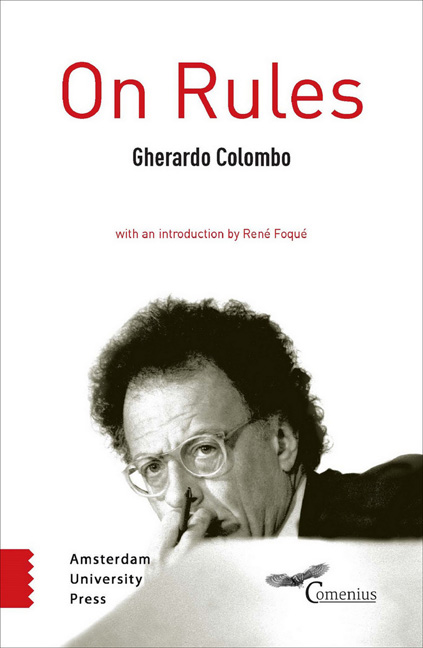Book contents
- Frontmatter
- Introduction: Gherardo Colombo’s Concern for the Democratic State under the Rule of Law: A Work in Progress
- Why?
- 1 An Imaginary Country
- Contents
- Part I The Ambiguities of Justice
- Part II Horizontal Society and Vertical Society
- Part III Towards a Horizontal Society
- Part IV How Do We Get There?
- Conclusion
- Acknowledgments
7 - Law is Just When It Exists
Published online by Cambridge University Press: 24 December 2020
- Frontmatter
- Introduction: Gherardo Colombo’s Concern for the Democratic State under the Rule of Law: A Work in Progress
- Why?
- 1 An Imaginary Country
- Contents
- Part I The Ambiguities of Justice
- Part II Horizontal Society and Vertical Society
- Part III Towards a Horizontal Society
- Part IV How Do We Get There?
- Conclusion
- Acknowledgments
Summary
Given how difficult it is, not to say impossible, to find satisfying parameters for verifying the justice or injustice of the law, it was thought adequate to evaluate it not on the basis of its content, but of the procedure followed to create it.
From this perspective, the law is not just because it coincides with god's word or because it translates into law the basic principles shared by all human beings. Law is just because it is issued by institutions that are in charge of doing so and the requisite procedures have been followed.
Thus, in a parliamentary democracy, a law is just when it is passed by parliament, after the bill has been proposed, debated, and approved by the required majority, enacted, and published on the registry in which laws are collected.
In short, law can be said to be ‘just’ when it is positive; that is, when it has been created and is observed.
Any command, prohibition, imposition, or discrimination can, according to this line of thought, become the content of law.
Justice, therefore, is no longer the motivation of law, but a consequence of it: the right thing is what the law declares to be right, whether or not it is consistent with principles (or motivations) external to the law itself. Justice therefore loses any claim to universality and, even from a theoretical standpoint, admits of the existence – or even coexistence – of several varieties of law, where each can be described as ‘right’ as long as it exists and is enforced in a certain territory.
- Type
- Chapter
- Information
- On Rules , pp. 45Publisher: Amsterdam University PressPrint publication year: 2016



